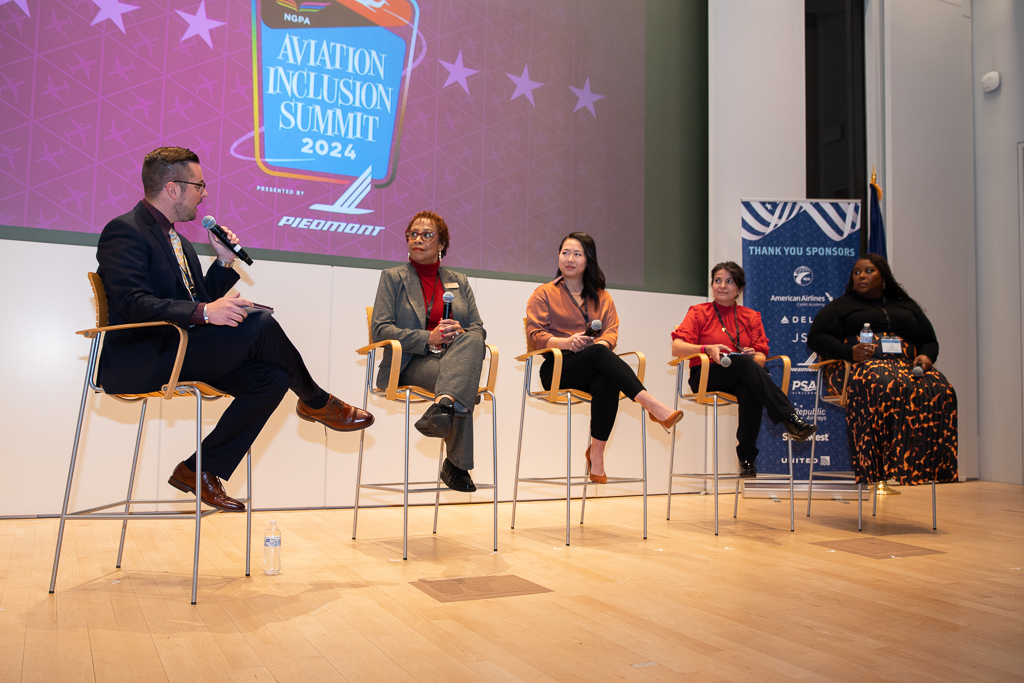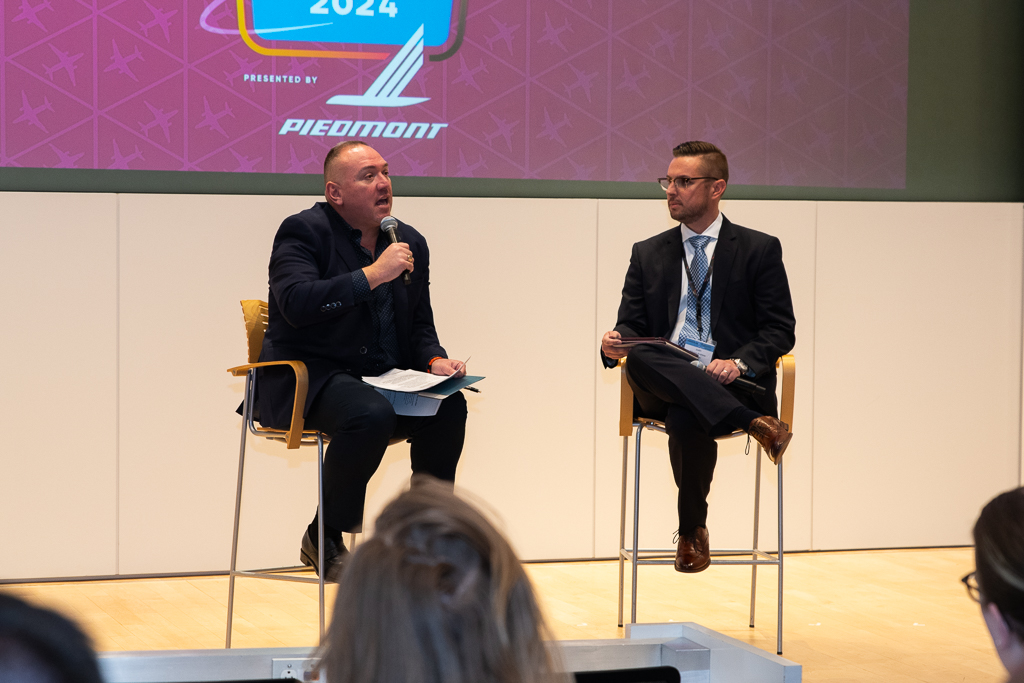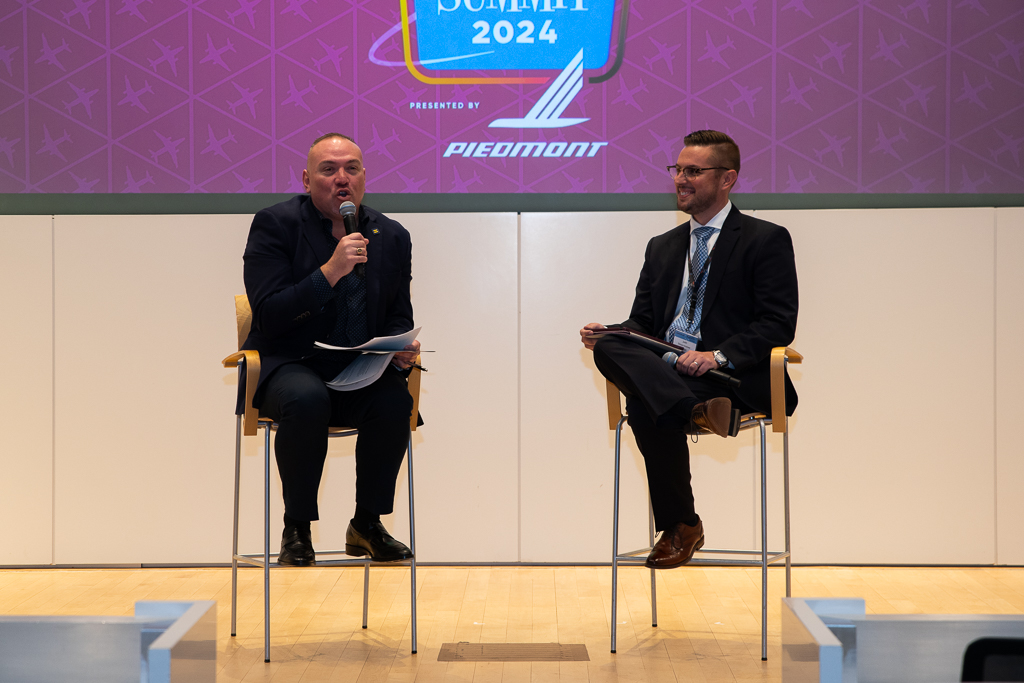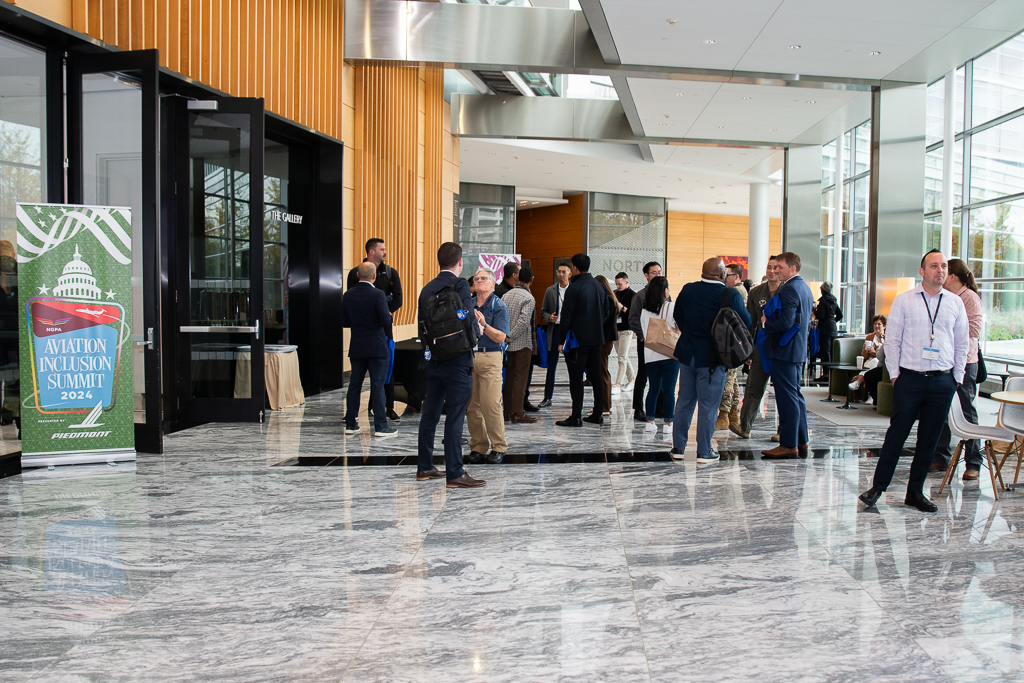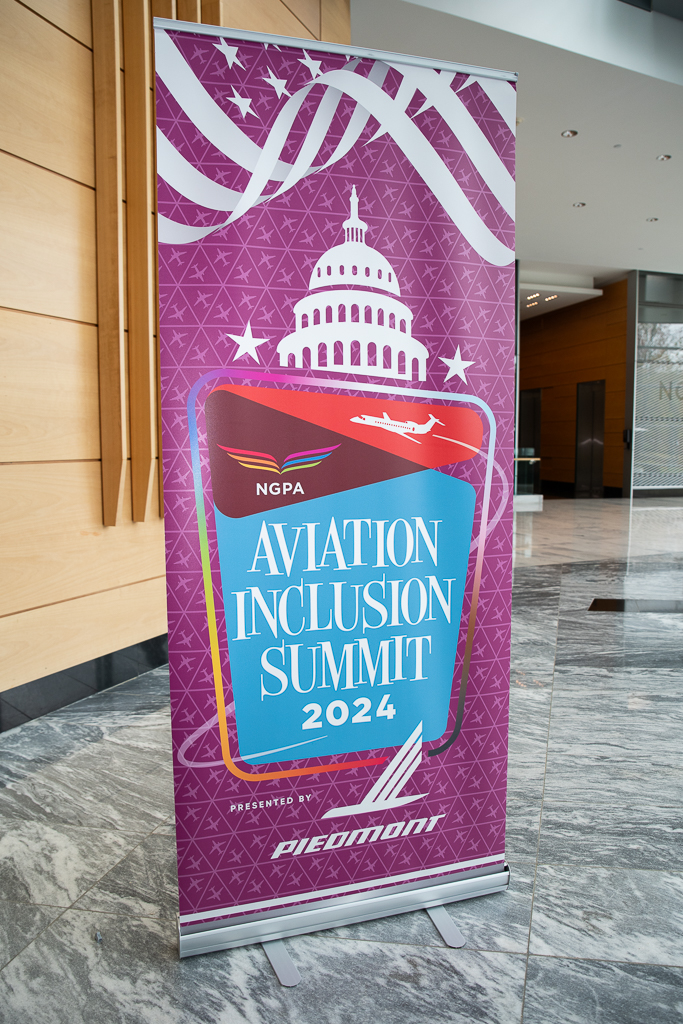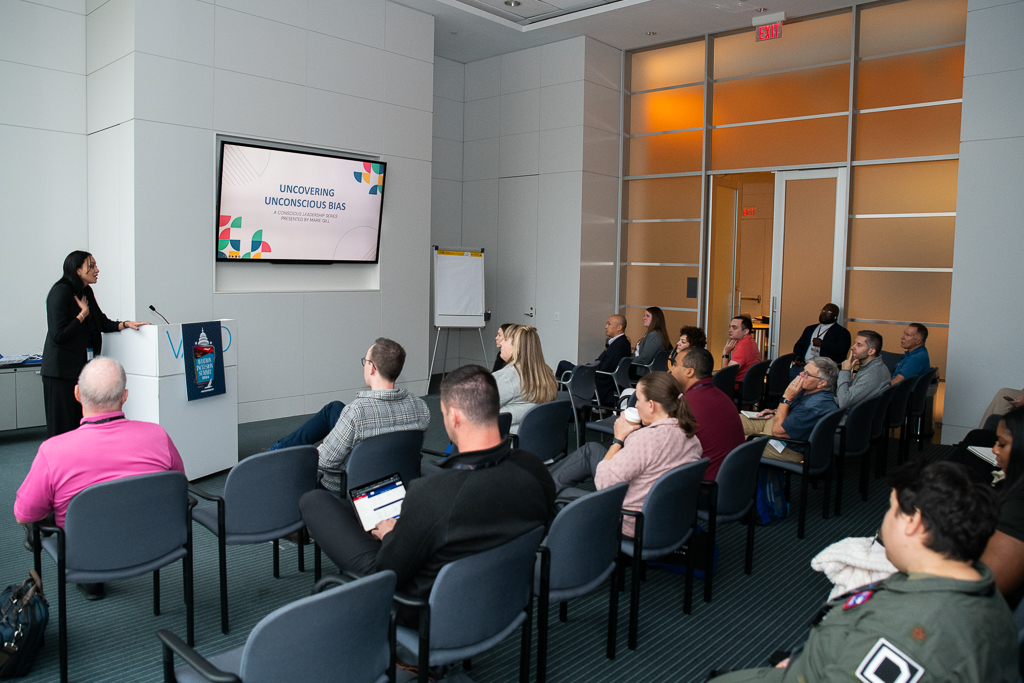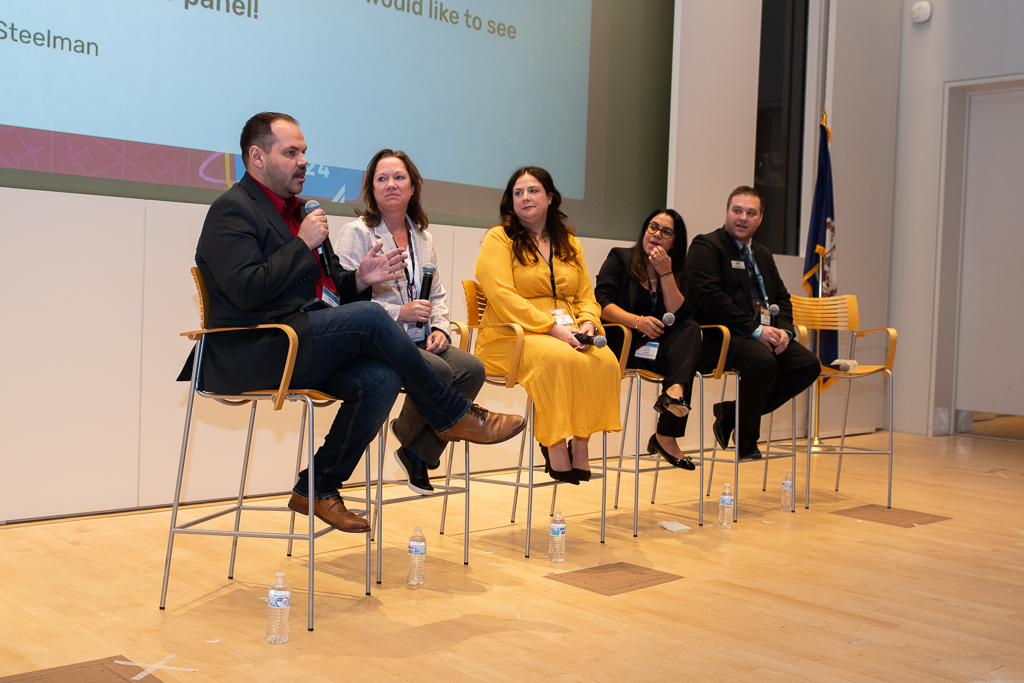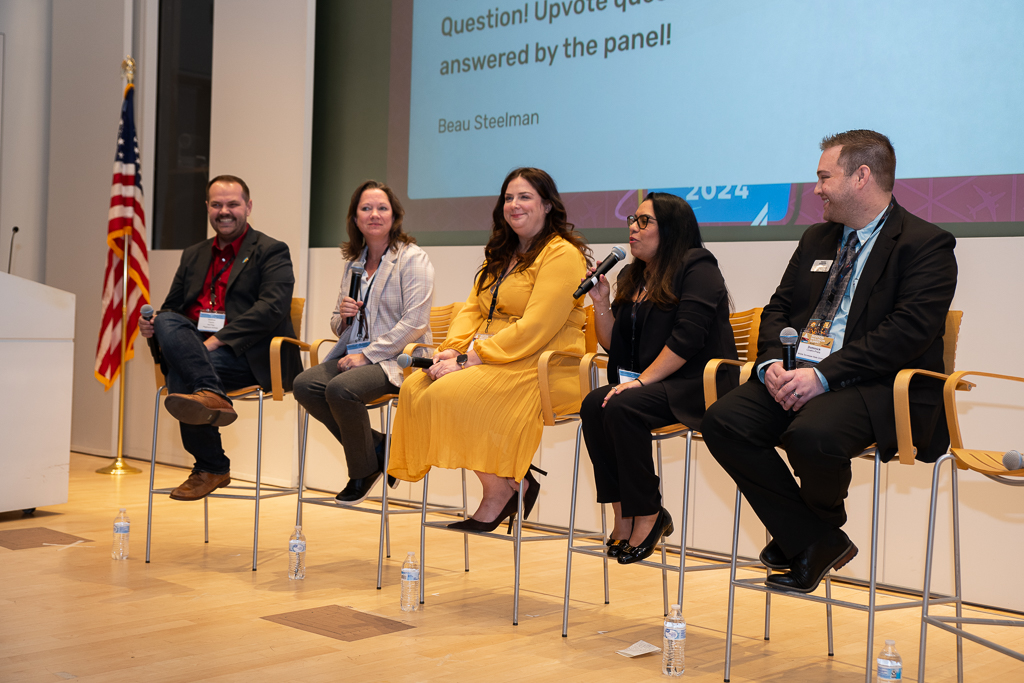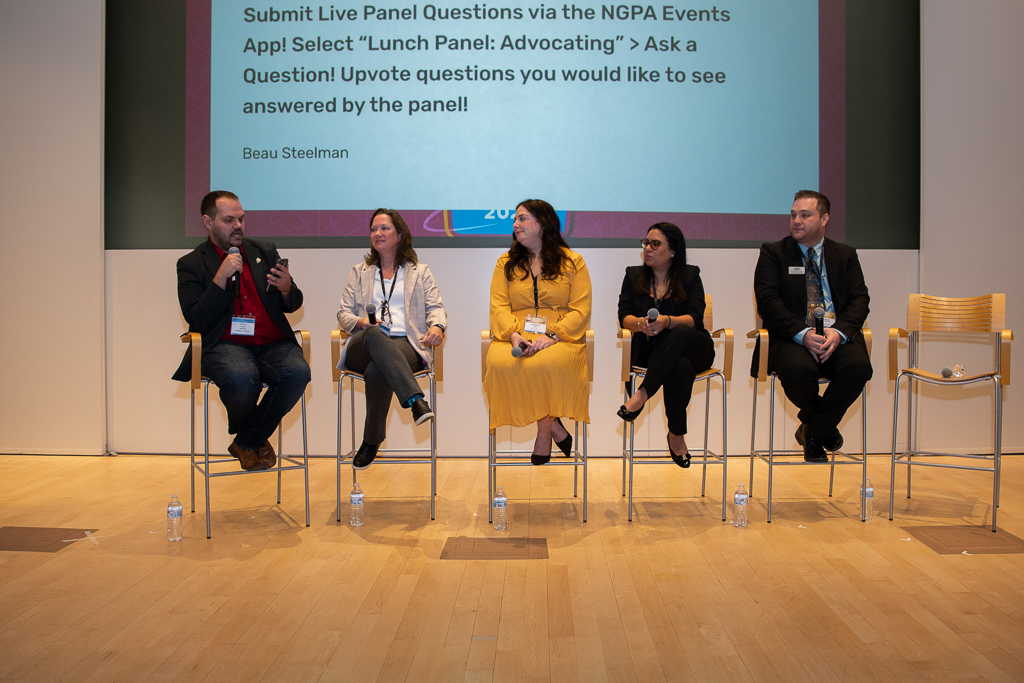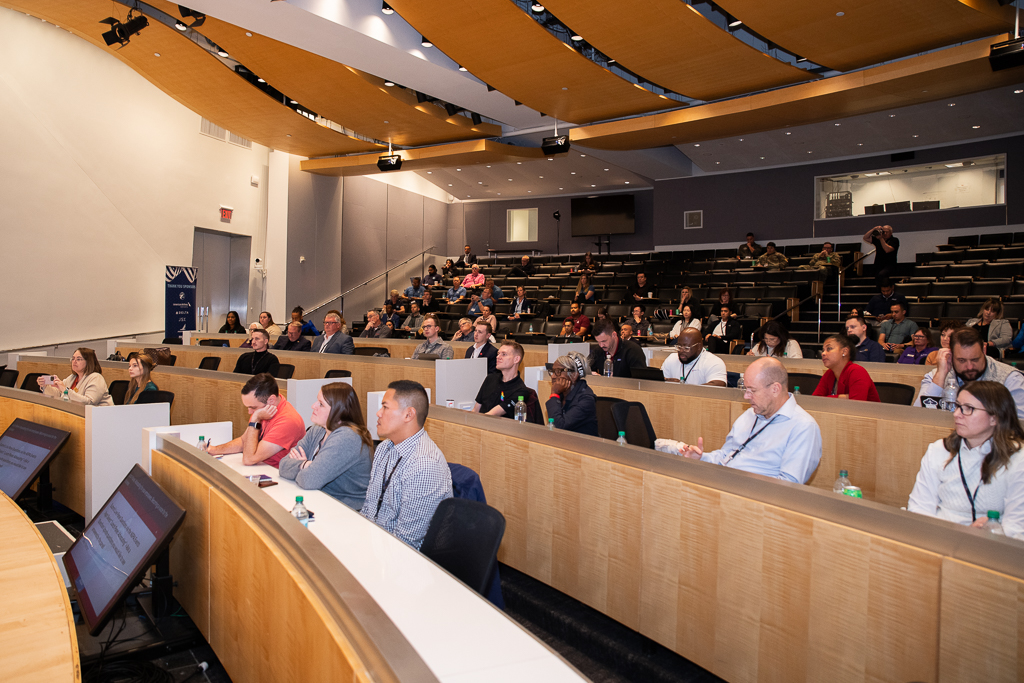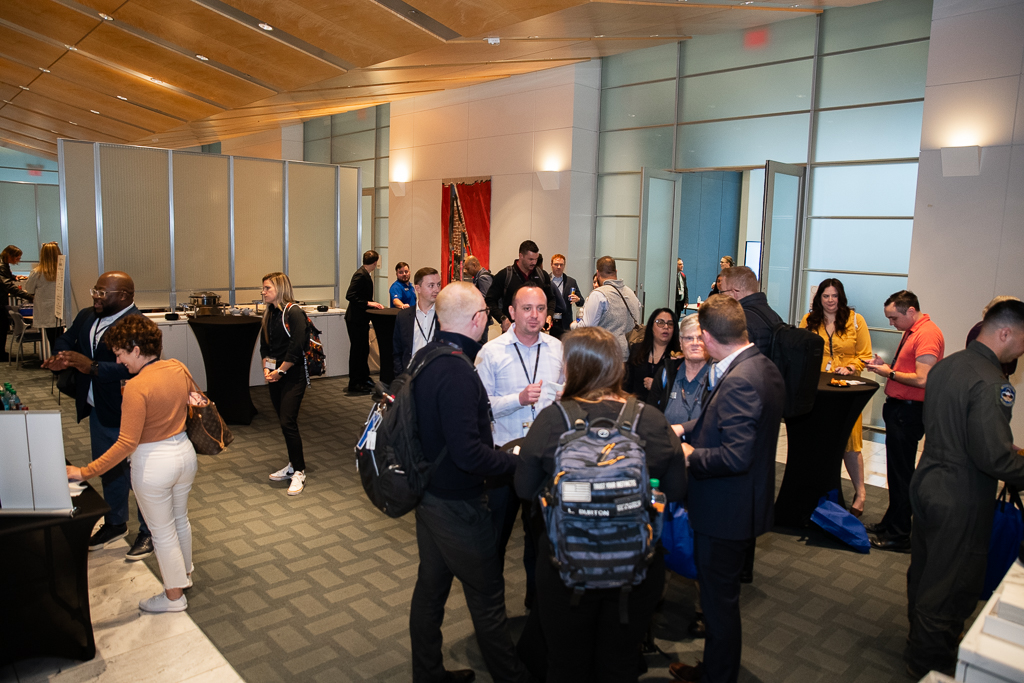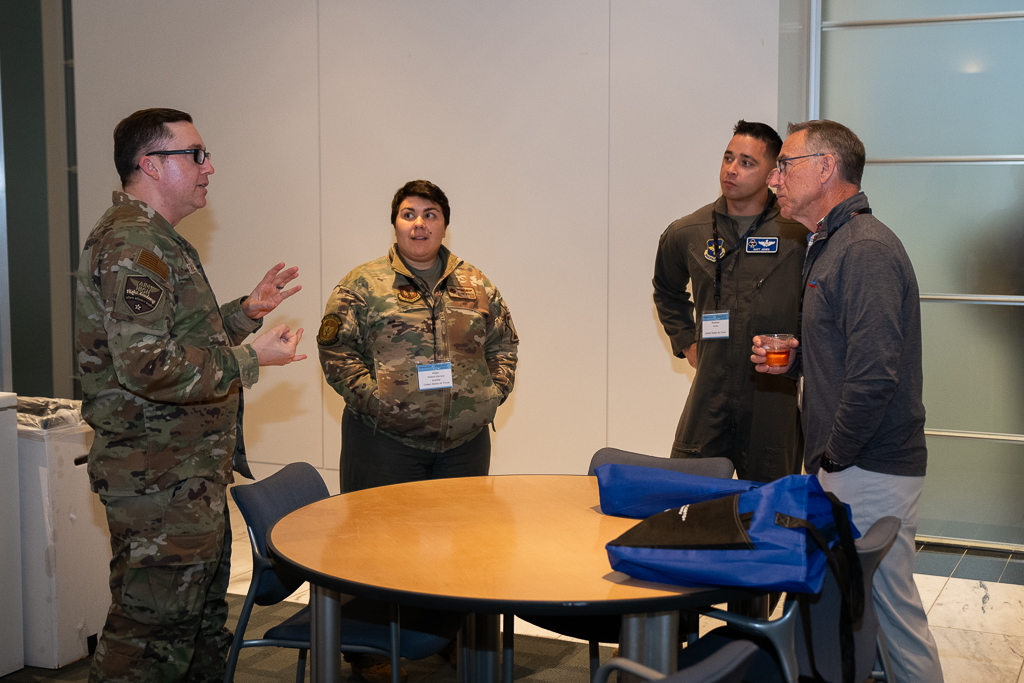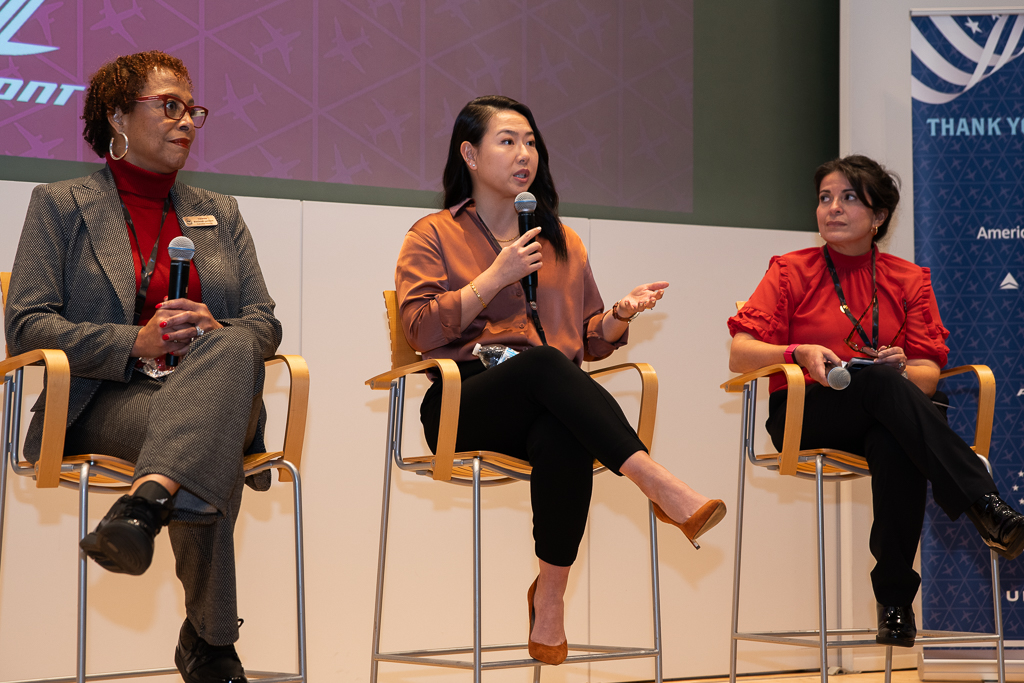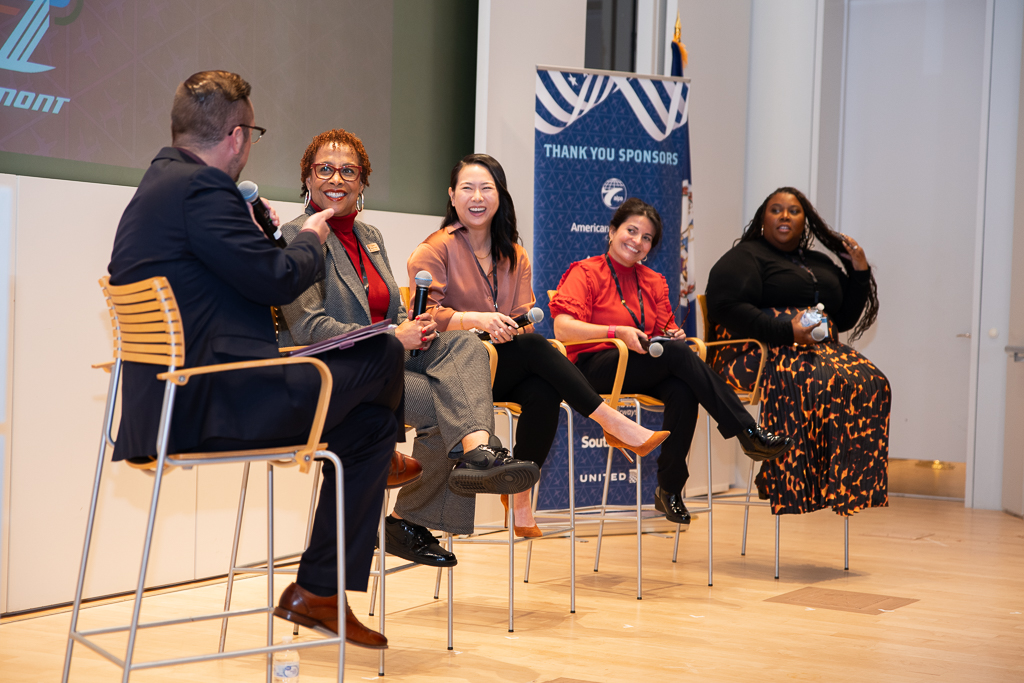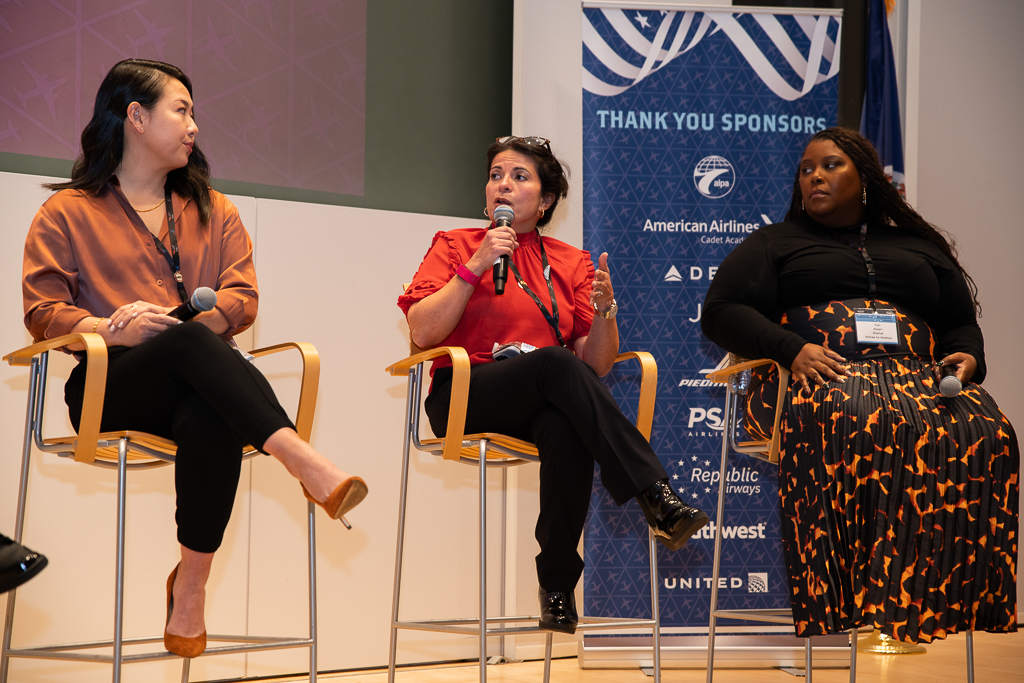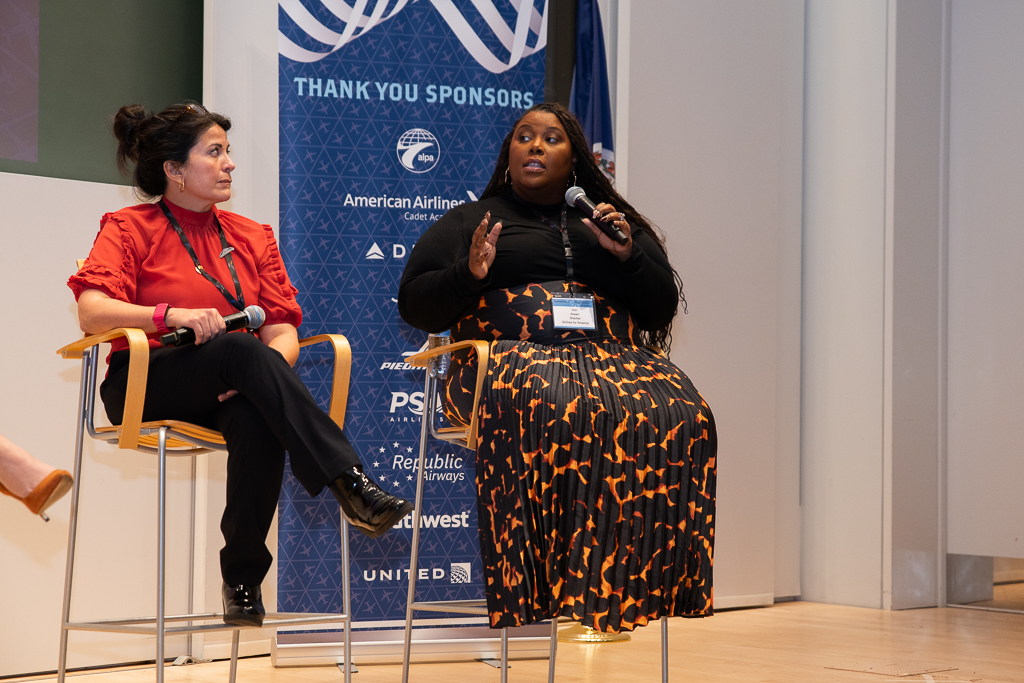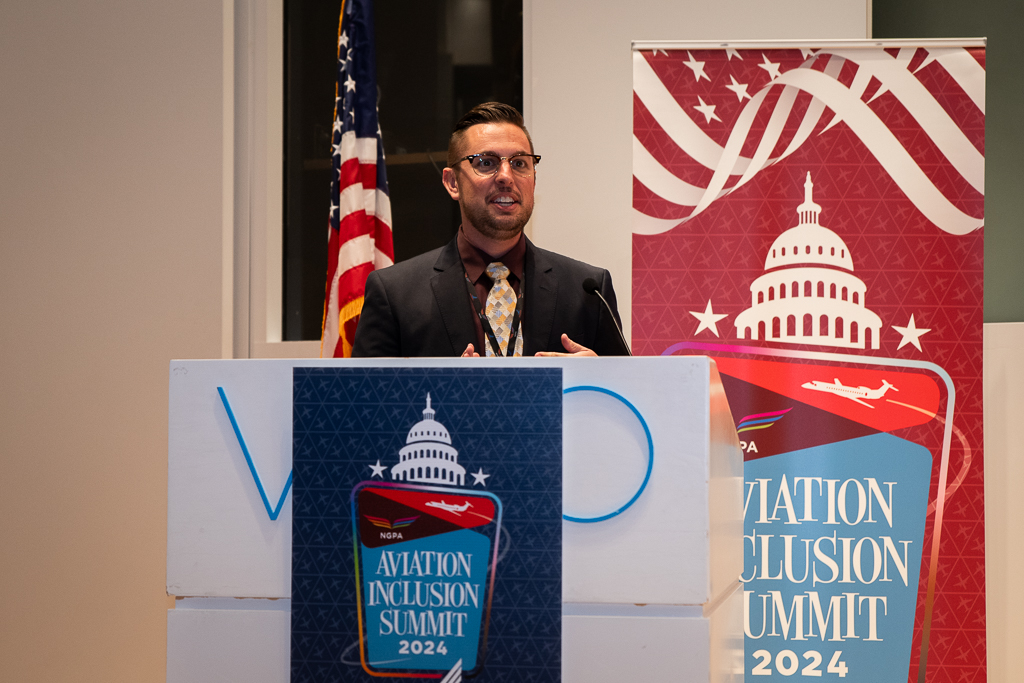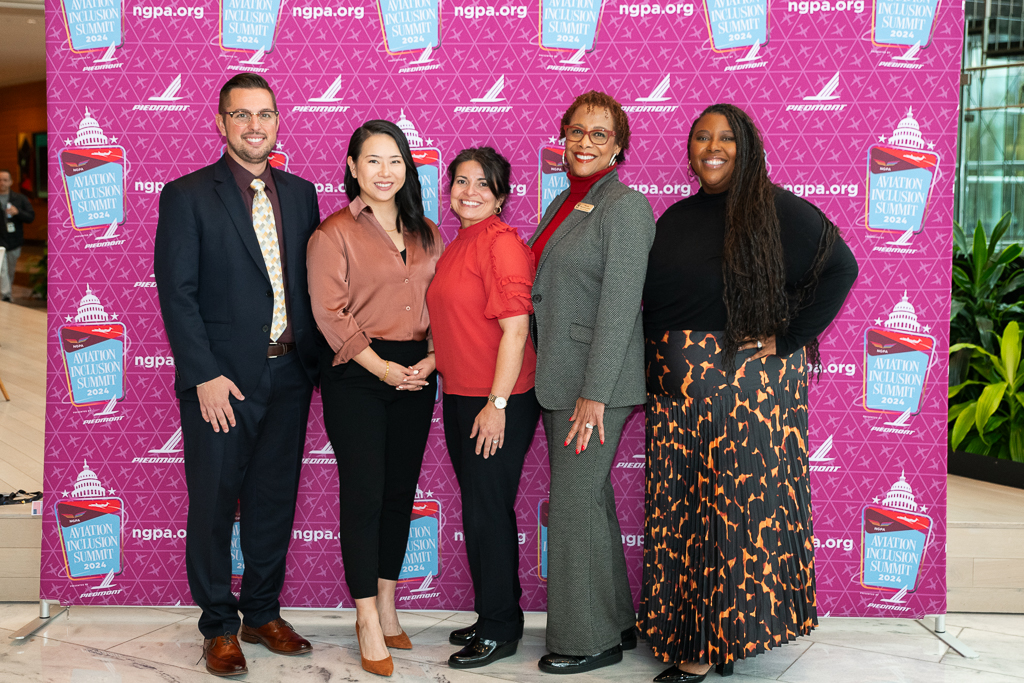Last month, professionals from across the aviation industry gathered at the Air Line Pilots Association International (ALPA) Headquarters in McLean, Va. to participate in the 2024 Aviation Inclusion Summit hosted by the National Gay Pilots Association (NGPA).
Day One
The summit kicked off with a discussion between NGPA Executive Director Justin Ellixson-Andrews and Human Rights Campaign Senior Vice President of Programs, Research and Training Orlando Gonzales on how the core of inclusive practices starts with an involved leadership team.
“The airline industry has been a leader for other industries in the space of inclusion,” said Orlando. “The power of a strong Employee Resource Group (ERG), especially when members of executive leadership are actively involved in it, is really tremendous. The reason why some companies succeed at fostering inclusive environments in the workplace is because they have that champion within their organization pushing the effort forward.”
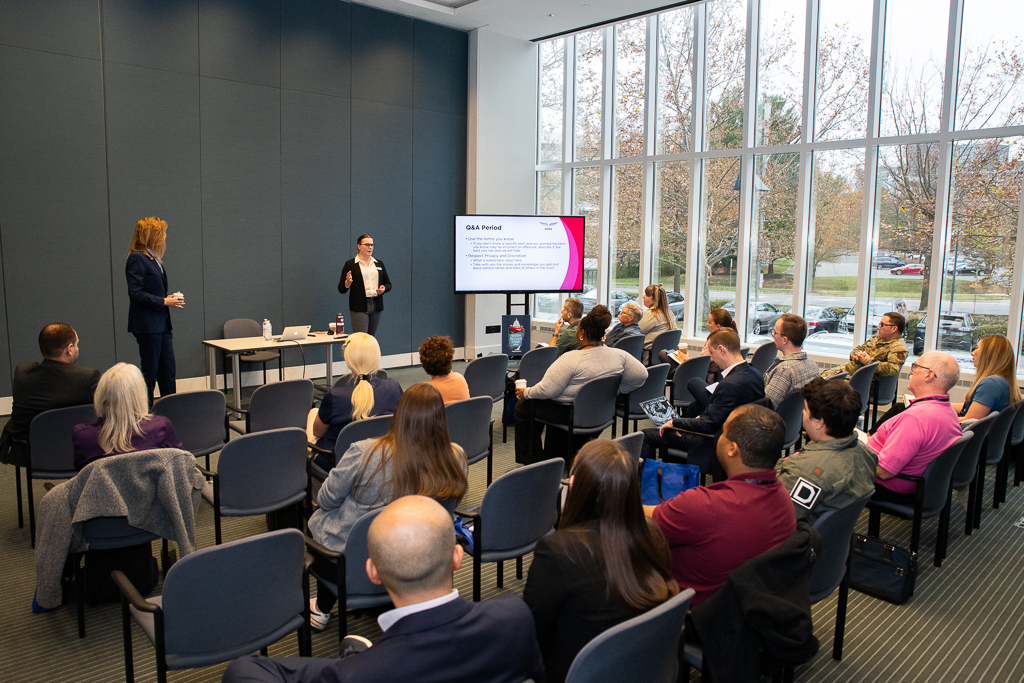
After the opening session, attendees split up to take part in different breakout sessions that covered everything from the barriers faced by gender-diverse pilots to understanding and addressing the unconscious biases that we all carry.
Throughout each of these breakout sessions, attendees were encouraged to not only listen in, but to ask questions and have open discussions with others in the room about the topics of each session.
A common theme that arose during each session, no matter the topic, was that every conversation we have around diversity and inclusion in the workplace should keep education and connection to others at the core. As Co-chair of the Transgender and Nonbinary Committee of the NGPA Kori Necker said during one of the sessions, “The goal here is learning, not slapping someone on the wrist.”
At the lunch break, Inclusion Summit attendees were invited back to the main auditorium to hear a panel discussion led by Matthew French, Manager of Diversity, Equity and Inclusion at Piedmont Airlines, on how leaders can better advocate for their employees.
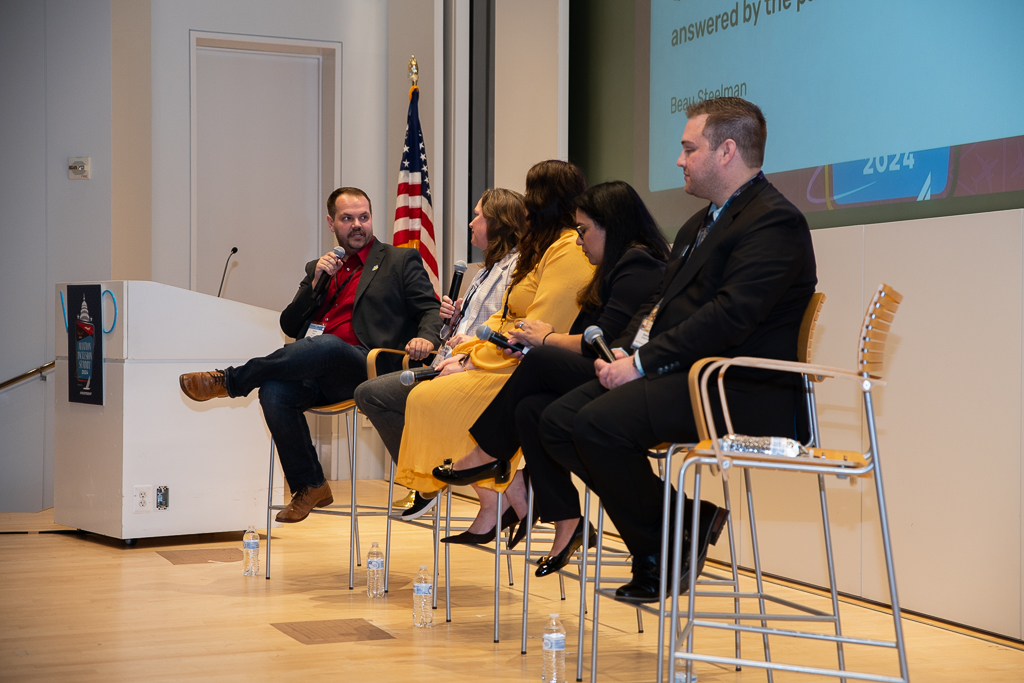
“DEI is a marathon, not a sprint. It takes time to grow,” said Matthew during the panel session. “Opening avenues for discussion and allowing your employees the space to learn and grow is the best way to run that race.”
Day Two
On the second and final day of the summit, attendees jumped right back into a whole new set of breakout sessions, with topics ranging from strengthening the resilience of a company’s DEI efforts to the importance of mental healthcare for pilots.
In a session led by Steven Jarrett, Director of People Development & Inclusion at PSA Airlines, attendees were again reminded that although many different factors play into the success of any given organization’s DEI efforts, the baseline of all of those factors remains the same – progress begins with open discussions.
“Determining and sharing your ‘why’ is important, but be sure to also allow others to share their ‘why’ as well,” said Steven. “Allow people to express themselves. Even if you don’t always agree on something, you still need to provide understanding.”
To close out the summit, attendees sat in on one final panel discussion led by leaders of other DEI-oriented aviation organizations. During this one-hour session, panelists answered questions from the audience that centered around how those in leadership roles can be better allies to their colleagues in aviation.
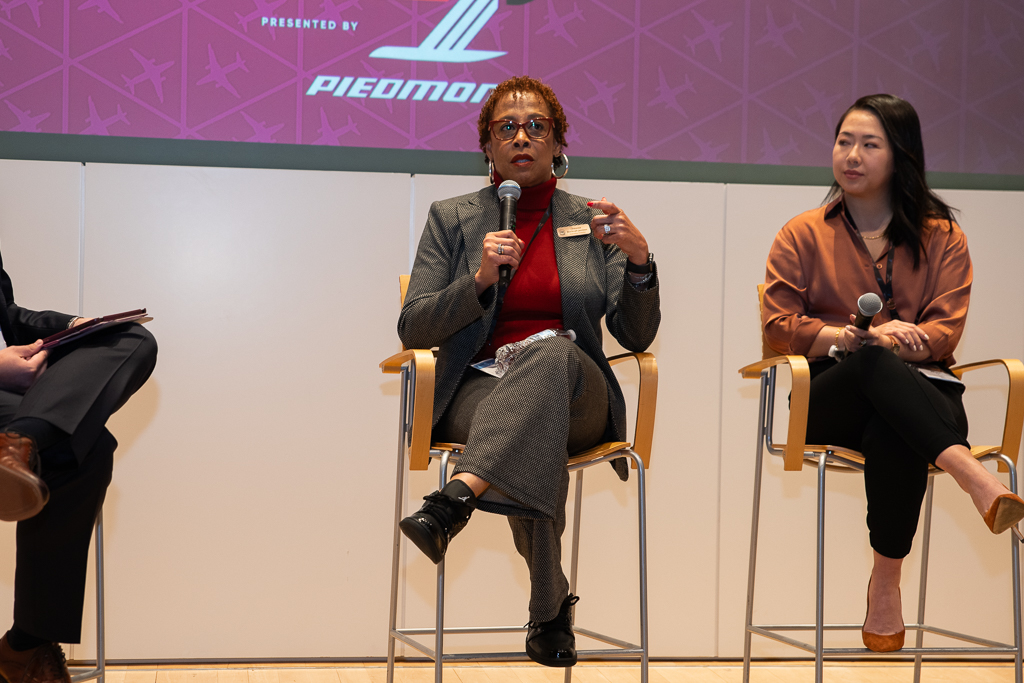
“We have to create a space of trust. If we don’t have trust as a foundation, we can’t move forward,” said Vanessa Blacknall-Jamison, Executive Director of the Organization of Black Aerospace Professionals (OBAP). “Being transparent and vulnerable and communicating with each other when you need help is one of the strongest things you can do, but you must have that foundation of trust before any of that can happen.”
The conversation went beyond just being inclusive to a company’s current group of employees – the panelists also discussed how being an example and continuing to do the work, beyond just talking about doing it, is what will pull in others who may be looking for an employer who they know will support them.
“As leaders, our ability to be flexible is what’s most important,” said Claudia Zapata-Cardone, President of the Latin Professionals in Aerospace (LPA), formerly the Latino Pilots Association. “We can change the name from DEI if we have to, but what’s important is that we’re still doing the work underneath all of that to prove ourselves and not just be performative.”
In Summary
Overall, this summit was an excellent opportunity for attendees to learn how anyone can cultivate a more inclusive environment in their workplace – whether that be in the flight deck, in the office or on the ramp.
A theme that remained constant throughout the entire event was that effective communication can lead to meaningful change, and you can’t have effective communication without first listening to others.
A solid thought to take away, even for those who weren’t able to attend the summit, is this: at the opening session on day one, Orlando Gonzales brought up the famous Martin Luther King Jr. quote, where he states that the arc of the moral universe bends towards justice, and added that that arc won’t bend on its own – it takes the effort of many to effect change for a brighter and more inclusive future for the collective whole.

